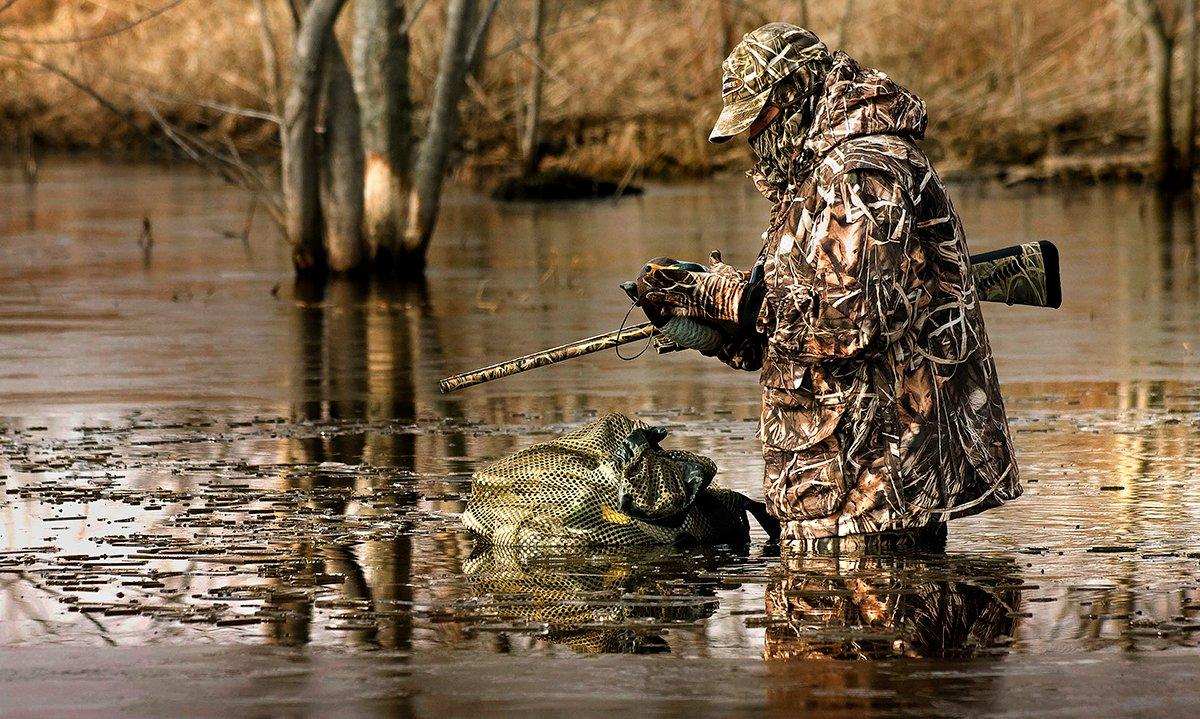Walking the fine line between wasting time and being a die-hard
Waterfowlers frequently face a nagging problem: When to pack up the decoys and quit for the day.
Sometimes, the answer is easy. When work or family matters call, you hunt as long as possible and then head in, albeit sometimes begrudgingly. Or, if fortune smiles and you fill your limit — or even your limit of a specific species, such as mallards or bluebills, for example — you can leave early with a sense of satisfaction.
But not all days afield are like that. Often, you enjoy a flurry the first hour, pick up a bird or two afterward and then contemplate how long to stick it out. Maybe you're a duck or two shy of a limit, or perhaps the action seems to be picking up. Then the inner battle begins.
A voice in your head repeats the axiom that you can't get ducks unless you're hunting, and that patience kills birds. Another voice — perhaps more reasonable at times — whispers that you've enjoyed a sunrise and shot a few ducks, and that it might be wise to catch up on life duties or other pursuits instead of hard-headedly scanning a seemingly empty sky for waterfowl.
Sometimes, compromise provides the best answer. If conditions seem reasonable and some birds continue to move, it might make sense to hunt until, say, 10:30 a.m. just to see what happens. That way, you're at least putting forth a good effort but not wasting the entire day.
Other days, an agreement between buddies sets the limit. When your hunting partner starts to grumble, you might appease him by offering to leave after another hour. Or conversely, he might placate you by promising to leave at 11 a.m., even though you've had enough by 9:30 a.m.
I fight this battle a lot, especially during early-season hunts, but it wasn't always that way. Years ago, I hunted until I filled up or absolutely had to leave — period. Then, after enduring some fruitless bluebird days in the marsh, I started to base my decision on weather conditions and bird behavior. Cool, breezy days or the promise of approaching fronts usually prompted me to hunt hard, often through the morning and into afternoon, especially if I was chasing divers. Still, warm mornings hinted that it was time to go. Years of experience started to reveal which days might reward extra effort and what conditions called for a midmorning nap.
That seemed like a common-sense approach, but I didn't always make the right decision. Many cool, windy days saw me head for the landing after enduring hours of fruitless effort. Other times, while feeling smug after quitting early during bluebird conditions, friends called to rub it in after killing several more birds.
Nowadays, I follow a slightly revised philosophy. Weather and duck behavior provides a good barometer of whether I leave early or stay late. But mostly, I base my decision on personal enjoyment. When I'm having fun soaking up the sights and smells of hunting, I might stay till noon or later, even if shooting is poor. Or, if I take a few birds early and feel satisfied, I sometimes call the day a success and pick up while ducks are still flying.
My bottom-line advice? Hunt hard. Use your experience to gauge when to leave. Most important, hunt because you enjoy it, whether that's for an hour or all day. When the fun stops, after all, there's no point to any outdoors pursuit.
Click here for more Realtree waterfowl hunting content. And check us out on Facebook.








